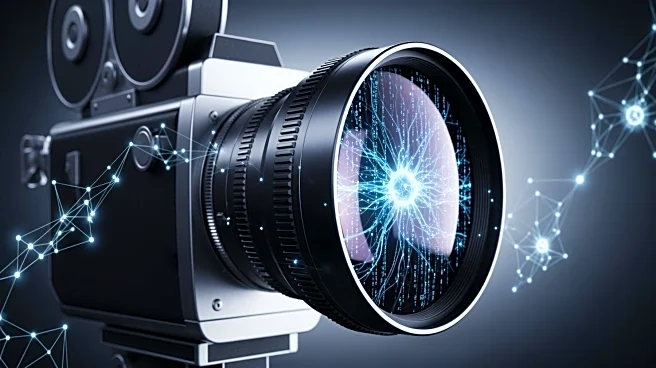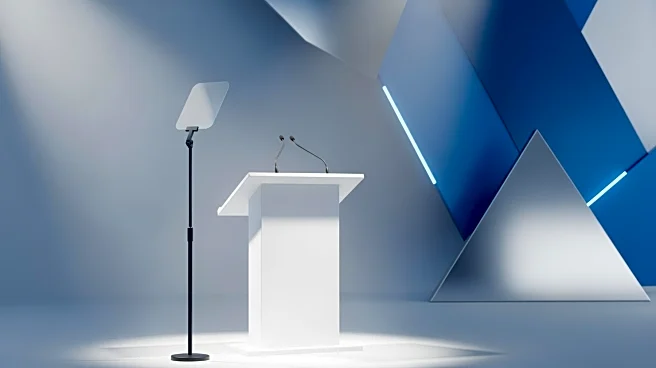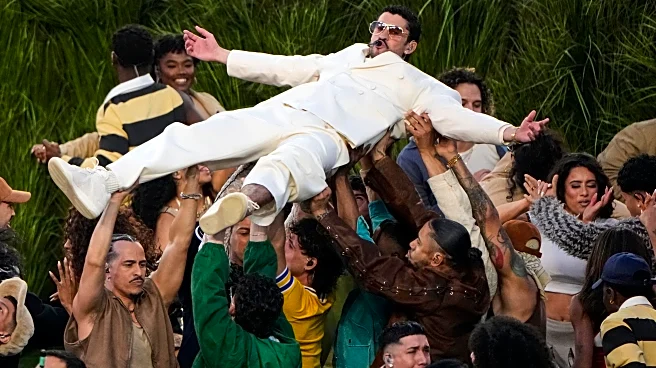What's Happening?
Erika Kirk, widow of the late conservative activist Charlie Kirk, has publicly declined an apology from television host Jimmy Kimmel. The controversy arose after Kimmel made remarks during a monologue
suggesting that Kirk's alleged assassin, Tyler Robinson, was affiliated with the 'MAGA gang.' Following these comments, Sinclair Broadcast Group, which operates numerous ABC-affiliated stations, approached Erika Kirk to appear on Kimmel's show for an apology. However, she refused, stating that she did not want an apology that was not heartfelt. Kimmel's comments led to his temporary suspension by Disney, which aimed to prevent further tension in an already sensitive national climate. Despite a subsequent apology from Kimmel, Erika Kirk remains firm in her stance, emphasizing that she neither wants nor needs an insincere apology.
Why It's Important?
This incident highlights the ongoing tensions and divisions within U.S. society, particularly concerning political affiliations and media representation. The backlash against Kimmel underscores the sensitivity surrounding political violence and the media's role in shaping public discourse. For media companies like Disney and Sinclair, the situation illustrates the challenges of balancing free speech with corporate responsibility and public sentiment. The refusal of Erika Kirk to accept an apology she perceives as insincere also reflects broader societal debates about the nature of public apologies and accountability. This event may influence how media personalities approach politically charged topics in the future, potentially affecting the content and tone of public discourse.
What's Next?
The broader implications of this controversy may lead to increased scrutiny of media figures and their commentary on sensitive issues. Media companies might implement stricter guidelines to prevent similar incidents, aiming to maintain public trust and avoid backlash. Additionally, the legal proceedings against Tyler Robinson, the alleged assassin, will continue to draw public attention, potentially influencing discussions on political violence and security at public events. Erika Kirk's decision to speak out may also inspire others in similar situations to demand genuine accountability from public figures.










